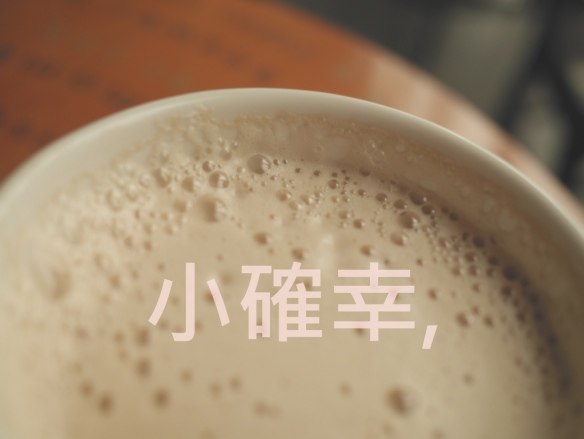
「輸尬ㄊㄧㄢㄊㄧㄢ」 (Su kah thiám-thiám) which can also be written 「輸到添添」 means “to have been defeated by a large margin” or 「被打敗了」 or 「輸得很慘」 in Mandarin. You can leave out the 到 (kah) which is equivalent to the Mandarin 「得」, leaving you with Su thiám-thiám .
I thought this was an amusing use of Taiwanese, as it came at the end of an article which is pretty critical of the ability of Taiwanese students to compete with the drive of Chinese students. The author has to assert her identity as a Taiwanese person to show that she’s not an outsider making criticism, but rather an insider pushing for reform. You’ve no doubt seen this before with the awkward Taiwanese stumbling of waisheng (families which came from China with the KMT around 1949) politicians or foreigners trying to criticize Taiwanese culture without putting people’s backs up too much. Of course, you can put this to your own advantage by blunting any criticism you make of your friends by saying it in Taiwanese. Here’s the phrase in the context of the original article:
「說個小故事,我在台大原本只收五十位學生,但有一位來自北京清華大學的交換生,因為錯過我在清華的課程,因此要求加入,他是典型的成就動機很強、求知若渴的清大人。他在台灣時,台大這群學生,沒人討論他;他離開後,大家面面相覷。是的,大家都有一個相同的感覺,我們,輸尬ㄊㄧㄢㄊㄧㄢ(台語,輸很慘)!」
I’ll tell you a story. At first when I was at National Taiwan University (NTU) I only taught 50 students, but one of them was an exchange student from Tsinghua University in Beijing, because he’d missed the classes I gave there, he requested to join the class. He was a classic example of a Tsinghua student, with a real drive for achievement and a thirst for knowledge. When he was in Taiwan, the students from NTU didn’t really talk about him; when he left, they looked at each other uneasily. That’s right, everyone had the same feeling: “We can’t even compete!”
The education system in Taiwan has been the topic of a ream of articles recently, most of it criticism that it has not produced enough qualified professionals for industry here. In similar articles on Taiwanese students, I’ve seen a lot of criticism of the Taiwanese hipster concept of 「小確幸」 – which translates roughly to “little things in life that make it worth living”.
According to a blog entry I read, the term in Japanese is an abbreviation of 「小さいけれども、確かな幸福」, which means “small but concrete feeling of happiness” and comes from a collection of essays entitled ‘Ways of Looking for A Vortex Cat’ or 「うずまき猫のみつけかた」, as follows:
生活の中に個人的な「小確幸」(小さいけれども、確かな幸福)を見出すためには、多かれ少なかれ自己規制みたいなものが必要とされる。(P.126)
If you want to find small but concrete feelings of happiness in everyday life, you at least need some personal rules to respect.
He then cites the following example:
たとえば我慢して激しく運動した後に飲むきりきり冷えたビールみたいなもので
Like the sensation of having an ice cold beer, after biding your time through a vigorous bout of exercise.
This term really caught on in Taiwan and has become synonymous with lowering your expectations of life, and enjoying the little moments of pleasure that consumerism can offer – ie Instagram pics with a coffee at Starbucks after a long day shopping and the phrase 「小確幸」. What kind of numpty would buy into that kind of thing?

Presidential candidate, now president-elect Tsai Ing-wen used this term in one of the debates, attacking the Ma Ying-jeou administration and the KMT for encouraging young people to buy into 「小確幸」 as a replacement for real economic policy:
Here’s the sentence in which she uses it, (a larger section of the speech in Chinese can be found here):
政府沒有領導大方向的能力,只好搞一些對經濟低迷的時候起不了多少作用的「小確幸」。
在這裡,我也想請教朱主席,國民黨對台灣經濟的長期規畫到底在哪裡?人民可以追求小確幸,不過,當一個政府,每天想著「小確幸」,人民只會陷入不幸。
When the government doesn’t have the capability to lead in a clear direction in the face of an economic slump, they can only put in effect some opportunities for the people to experience small pleasures, which are really limited in their effect.
I want to ask [KMT] Chair [Eric] Chu, where the KMT’s long-term economic plan for Taiwan is? People can pursue small pleasures, but whenever a government is only thinking about these small pleasures, the people will fall into grave misfortune.
The translation doesn’t really do her wordplay with the term any justice – 「幸」 also goes to make up the second part of the word for “misfortune” – but you get the gist.
In other news, I found this Chinese-language blog on Taiwanese language for anyone who wants to check it out.
Lead photo credit: Jessie Yang
